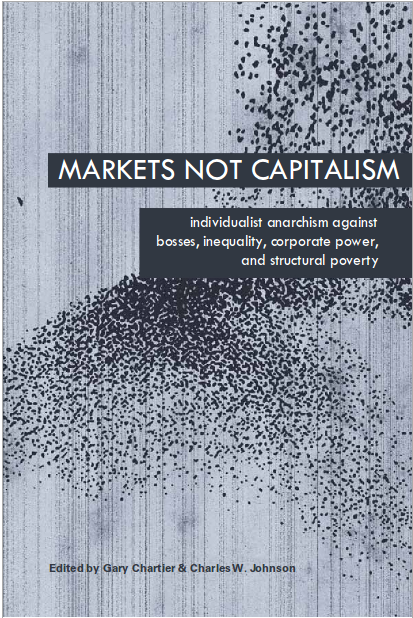I don’t have any utopian expectations about Bitcoin. The protocol design is thoughtful, and the underlying technology is kind of cool, especially if you’re interested in peer protocols or in cryptography. It’s an alternative form of money, which allows for near-instant transfers and substantial anonymity in transactions across long distances. Like other alt-currencies and like other craftily designed peer protocols, it may become a useful component in developing counter-economic institutions and helping to build social and economic infrastructure beyond the control of the state-capitalist status quo. I hope it will. But if so, it will be because it is one useful hack among many that we can employ. Bitcoin is not magic; it’s not the only thing that’s important; it’s not a revolution by itself. It is a tool; and one that I’ve found it a useful one from time to time. Evidently other people do, too.[]
As people have become more interested in Bitcoin, a lot more articles have been published about it. It’s common for gold bugs to publish increasingly shrill apriori denunciations of Bitcoin because it is (they claim) not backed
by a scarce commodity of independent economic value; and (they are convinced) only money that’s backed by a scarce commodity of independent economic value can be sustainable in the long run. I think that idea is probably wrong from the get. But even if it’s correct, it’s irrelevant: Bitcoin is backed by a valuable commodity. Or more precisely, Bitcoin blocks are a valuable commodity; they are constituted by scarce, computationally-expensive, cryptographically useful calculations performed by participants in the network (especially by Bitcoin miners). Those are scarce resources (it takes computing equipment and network communications and electricity to generate them). And they are valuable goods. They are valuable in virtue of the computational work they make possible. Almost none of the blanket attacks on Bitcoin take the value of cryptographic computation, or of the communication protocols that it establishes, into account; see, for example, this silly article from Gizmodo, which starts out by pointing out some really pretty awesome facts about the power of distributed computing, and how much dispersed computational work is being harnessed to keep the Bitcoin network and blockchain in working order:
According to Bitcoin Watch, the whole Bitcoin network hit a record-breaking high of 1 exaFLOPS this weekend. When you’re talking about FLOPS, you’re really talking about the number of Floating-point Operations a computer can do Per Second, or more simply, how fast it can tear through math problems. It’s a pretty common standard for measuring computer power. An exaFLOPS is 1018, or 1,000,000,000,000,000,000 math problems per second. The most powerful supercomputer in the world, Sequoia, can manage a mere 16 petaFLOPS, or just 1.6 percent of the power geeks around the world have brought to bear on mining Bitcoin. The world’s top 10 supercomputers can muster 5 percent of that total, and even the top 500 can only muster a mere 12.8 percent.
–Eric Limer, The World’s Most Powerful Computer Network Is Being Wasted on Bitcoin
In Gizmodo (May 13, 2013)
… and then bizarrely concludes that, therefore, this awesome computational power is being wasted,
when it could have been devoted to an awesome real
problem, like processing SETI@Home data:
. . . because the new ASIC miners—machines that are built from scratch to do nothing but mine Bitcoins—can’t even do other kinds of operations, they’re left out of the total entirely. So what we’ve got here is a representation of the total power spent on Bitcoin mining that could theoretically be spent on something else, like real problems that exist naturally.
Because of the way Bitcoin self-regulates, the math problems Bitcoin mining rigs have to do to get more ‘coin get harder and harder as time goes on. Not to any particular end, but just to make sure the world doesn’t get flooded with Bitcoins. So all these computers aren’t really accomplishing anything other than solving super difficult and necessarily arbitrary puzzles for cyber money. It’s kind of like rounding up the world’s greatest minds and making them do Sudokus for nickels.
Projects like Folding@Home and SETI@Home use similarly networked power for the less-pointless practices of parsing information that could lead to more effective medicines or finding extra-terrestrial life, respectively, and either are hard-pressed to scrounge up even half of a percent of the power the Bitcoin network is rocking. And with specialized Bitcoin-mining hardware on the rise, there’s going to be an army of totally powerhouse PCs out there that are good for literally nothing but digging up cybercoins.
It’s incredible to think about the amount of power being directed at this one, singular purpose; power that’s essentially being “donated” by thousands of people across the globe just because they have skin in the game. It’s by far the most computational effort that has ever been devoted to a single purpose. And sure, Bitcoins are fine and all, but can you imagine what we could do if this energy was put behind other tough problems? We’ll you’re going to have to imagine, because so long as mining Bitcoins can earn you money and folding proteins can’t, it’s pretty clear which one is gonna get done.
–Eric Limer, The World’s Most Powerful Computer Network Is Being Wasted on Bitcoin
In Gizmodo (May 13, 2013)
I guess that would be a pretty big waste, if the Bitcoin network did not provide a useful service with the results of that work.
But it does.
The implicit claim that maintaining the blockchain in working order, — a computationally-expensive task which provides an anonymous, cryptographically-verified international account ledger and a free peer-to-peer global money transfer service to anyone in the world with an Internet connection, — somehow provides less of value to the world than SETI@Home is of course completely unsubstantiated by anything in the article, and is really pretty laughable.
For what it’s worth the article’s other direct claim — that Bitcoin mining is somehow taking up scarce spare cycles that might otherwise have been put to use on other distributed computing projects — is also an odd claim, and not one substantiated by anything in the article. What is far more likely is that the opportunity cost of Bitcoin mining is something completely different — if miners weren’t building ASIC rigs, they would almost certainly not be spending the money on equipment and electricity for Folding@Home or other distributed computing projects; they’d be spending it on some other money-making venture, or on leisure.

